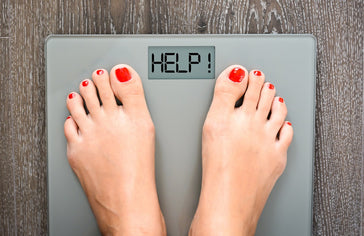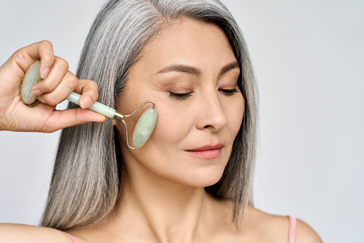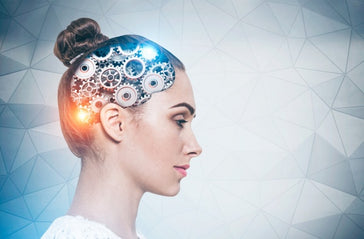Does Melatonin Help with Kids’ Sleep?
Posted by Mike Miryala on
You might have observed your child struggle with lack of sleep, even when you get them through the bath, tell multiple stories, and give them lots of snuggles and kisses.
This can be disturbing and you might be considering giving them a little melatonin to help them sleep. But the question most parents are asking is, “does melatonin help with kids’ sleep? Continue reading; this article will show you the facts you need to know.
Research has estimated that about 75% of school-aged children struggle with sleep, and unfortunately, this takes a negative toll on their ability to concentrate and learn in class. Poor sleep has also been linked to health conditions, such as childhood obesity.
Little wonder a lot of parents consider giving their kids melatonin, a hormone that supports sleep. However, some adults consider melatonin to be safe for kids just like in adults. Keep reading to know!
What is Melatonin?
Melatonin is a hormone released by your brain’s pineal gland to prepare and let your body know it’s time to head to bed. This hormone is often called the “sleep hormone” and it sets your circadian rhythm, otherwise called your internal clock.
The level of this hormone rises in the evening and drops gradually a few hours before your time to wake up.
Apart from sleep, melatonin has been studied to play a role in other functions, including regulation of body temperature, blood pressure, immune function, and cortisol level.
The synthetic form of melatonin is available over the counter at health food and drug stores. This melatonin mimics the work of our naturally produced melatonin.
It has both a “chronobiotic” effect (meaning it shifts the circadian rhythm to allow you to sleep earlier) when taken in much smaller doses (1/2 mg) in the early hours of the evening and a “hypnotic effect” (meaning sleepiness-inducing) when taken in larger doses (3 or 5 mg) before going to bed.
However, using synthetic melatonin does not suppress your body’s natural production of the hormone.
Children having difficulty falling asleep are typically allowed to take a bedtime dose.
Generally, in the U.S, people take melatonin to manage a variety of sleep-related issues, including:
- Jet lag
- Insomnia
- Sleep disorders related to mental health
- Circadian rhythm disorders
- Delayed sleep phase syndrome
However, in other parts of the world, including New Zealand, Australia, and many European countries, melatonin is only sold with a prescription.
Does Melatonin Help Kids With Sleep?
You might have wondered if your child can fall asleep better after taking melatonin supplements. This is a common question among many parents.
The good news is that many studies have shown that this may be the case.
Many research studies show that melatonin supplementation helps children with autism, attention deficit hyperactivity disorder (ADHD), and other neurological conditions that can interfere with their ability to fall asleep.
One analysis of 13 different studies revealed that when melatonin was administered to someone with neurological conditions, it causes them to fall asleep 29 minutes faster and enjoy their sleep 48 minutes longer on average.
Some healthy kids and teenagers who struggle to fall asleep have also been observed to experience similar effects after taking a melatonin supplement.
However, many factors can cause sleep problems. Light-emitting devices, for instance, can suppress melatonin production when used late at night. In this case, limiting the use of technology before bed can help to clear sleep issues.
Apart from light-emitting devices, restless leg syndrome (uncomfortable feeling in the legs at night), anxiety, too-early bedtime, and an undiagnosed health condition can also cause your child to have difficulty falling asleep.
Hence, it is important to seek medical advice before choosing the option of a sleep supplement to treat your child’s sleep disorder. This way, your doctor can complete a thorough investigation to ascertain the root of the problem.
If the condition does not improve after taking melatonin, you shouldn’t see it as a “stand-alone” solution. Try to accompany this supplement with behavioral interventions.
You can provide positive reinforcement for staying in bed, use “check-ins” at bedtime, or delay the bedtime to more closely match the actual sleeping time.
However, always pay attention to healthy sleep practices like sticking to a regular bedtime routine and having a regular bedtime and wake time every day of the week.
Note that a melatonin supplement may not help a child who stays on their electronic device just before bed. These devices suppress the ability of the body to release this hormone.
More so, children under age 3 who are developing healthily should not be given melatonin. These kids tend to suffer withdifficulty falling and staying asleep naturally.
But teens with the “delayed sleep phase,” which is a circadian rhythm disorder characterized by a delay in the natural fall asleep and wake times by three hours or more, can be treated with melatonin. The management of this condition is best conducted by a sleep specialist and it usually includes avoiding light exposure in the evening time and adjusting the sleep schedule.
Safety of Melatonin for Kids
Studies show that the short-term use of melatonin is safe for kids and does not pose any side effects. However, some kids may experience symptoms such as headache, nausea, excessive sweating, bedwetting, morning grogginess, dizziness, stomach pain, and more.
That said, health professionals are still unsure about the long-term effects of melatonin. But many studies are still ongoing to prove if long-term melatonin use is safe for kids.
But be sure to see your doctor if your child struggles to stay asleep or fall asleep.
When to Avoid Melatonin
Now you already know kids lose sleep for several reasons. Hence, do not use melatonin if:
- the insomnia is short-term, which is sometimes caused by an ear infection
- the insomnia is situational (maybe caused by anxiety about a new school session)
- your child is younger than 3
- the insomnia is due to an underlying physical cause (like restless leg or sleep apnea)
More so, do not substitute healthy sleep practices for melatonin. Always support your child to keep a regular and age-appropriate bedtime routine, no screens or electronics before bedtime, and no caffeine.
Other ways you can help your child fall asleep include:
- Help them relax before bedtime
- Keep temperatures cool
- Take a bath close to bedtime (around 90-120 minutes before bed)
- Get plenty of sunlight during the day

Final Remark
Your child needs a good amount of sleep to maintain a healthy life. But poor sleep has been a common problem among school-aged children. The good news is that melatonin works for kids just like in adults as an effective sleep aid supplement. Besides, it is safe to use with little to no side effects.
Short-term studies show that melatonin is effective in improving sleep quality in kids, and helping them fall asleep faster. However, many studies are still ongoing regarding the long-term use of this sleep supplement. Hence, it is best to consult your doctor before giving your child melatonin.
Sometimes, your child may suffer from poor sleep quality due to habits they have formed before bedtime, such as using light-emitting devices. That's one more reason you need to limit their use before bedtime.
Other useful tips include helping your child relax before bedtime, setting a bedtime, keeping a cool sleeping environment, getting plenty of sunlight during the day, and creating a bedtime routine.
Remember, when you teach your child healthy sleep routines, you’re not only giving them a schedule, but you’re also giving them attention, health, energy, and cheerfulness that will be with them for a lifetime.

Mike Miryala, Head Pharmacist at CoBionic
You may also like:
Lull-a-Bear Sleep Gummies
- 100% Vegan Gummies to help you sleep faster and longer
- Eases anxiety and stress - - relaxing the central nervous system
- Improves brain function by enhancing focus and mood
Magnesium Glycinate
- 100% Vegan Capsules with Magnesium Glycinate
- Clinically-Proven to reduces stress, elevate mood and promote better sleep
- Decreases blood pressure and leads to better heart health
- Helps regulate blood sugar and improves brain function







